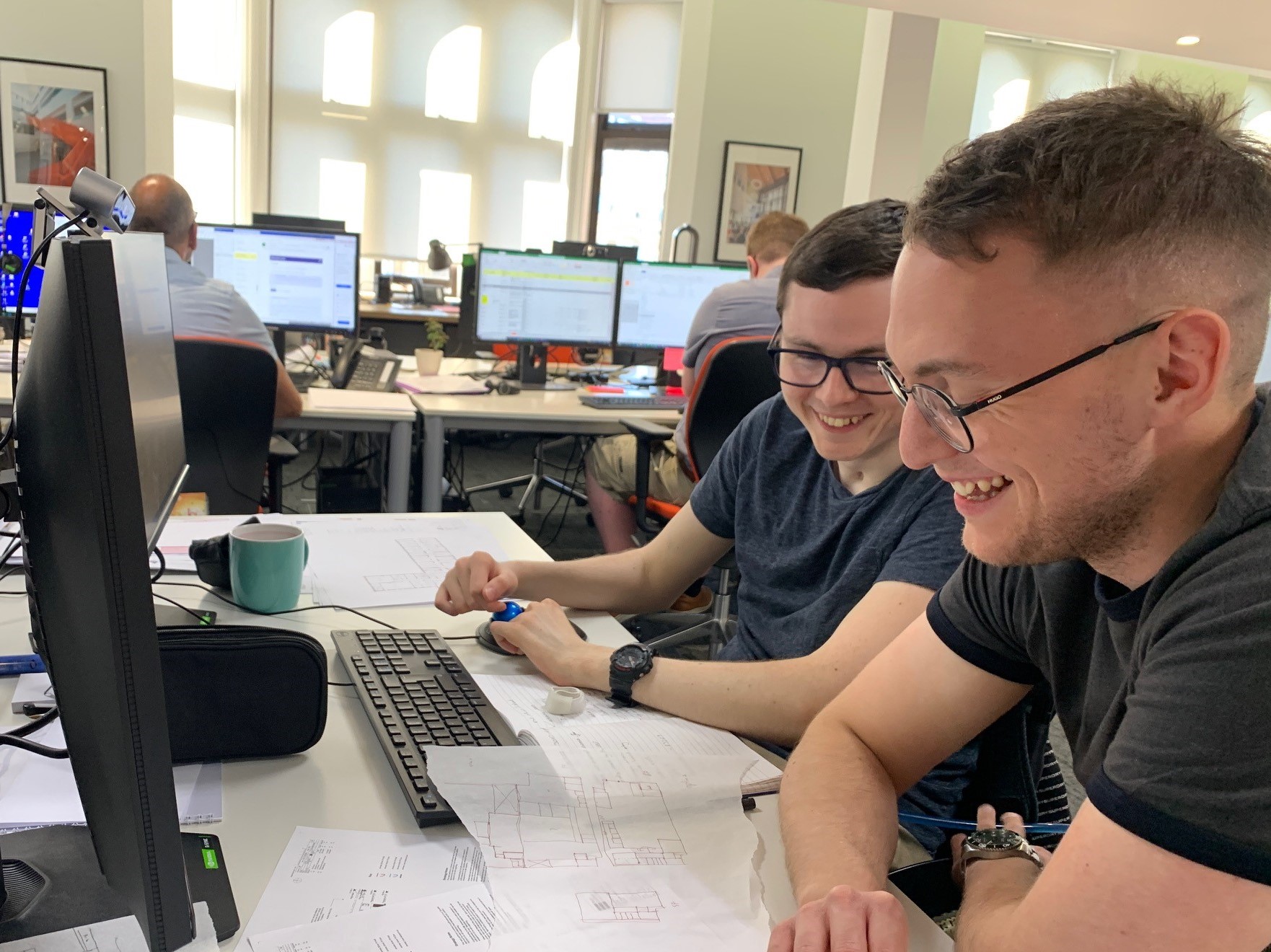As we’re in the midst of the summer holidays, students would be forgiven for enjoying the warm weather and pushing all thoughts of school, college or university to the back of the mind. However, with plenty of free time and even less deadlines, now is an ideal point to think about a future career. Our architect and work experience co-ordinator, Jacob Peplow discusses his route into architecture and the importance of gaining workplace experience for creativity, confidence and wellbeing…
RCA: Jacob, please tell us how you got started in architecture?
JP: I always had a huge interest in art/drawing and was fascinated by the process of turning an idea into an experience but questioned how it could become a career. My Dad taught me basic technical drawing and suggested I research architecture to achieve this ambition. By about age 14/15, I knew this was the career path for me so I explored further by visiting local practices and asking for work experience opportunities.
RCA gave me a chance and I completed my first placement when I was 15. I quickly realised the importance of staying connected, and was fortunate to be invited back annually through my A Levels and undergraduate degree. After graduating, I was offered a Part 1 position and have remained with the practice for the past seven years, qualifying as an architect in 2021. I can’t ever see myself doing anything else; it’s a subject that, when studied, changes your outlook on the world.
RCA: What’s your advice for young people unsure about their career path?
JP: Don’t be too insular. Look at your hobbies and interests and think pragmatically about how these could be turned into a meaningful and fulfilling career that’s personal to you. The corporate, careers fair route is so often pushed at students but remember there isn’t ‘one job to fit all’ and that different industries have multiple roles within them. Use social media as a resource, look out for ‘day in the life of’ videos to better understand job roles and then find people with those careers to talk to. LinkedIn is a good place to start for this and remember, practitioners who genuinely care about their industry will give you their time.
RCA: Why is workplace experience important?
JP: Work placements are a great tool for establishing if you’d like to engage long-term in a particular industry. There can be a significant disparity between education and practice, and work placements can help bridge this. While education might build your interests and introduce you to convention, style, history and trends, it can’t prepare you for the real-life workplace, a 9-5 environment with teamworking, presentations and deadlines. It can build confidence, teach responsibility and perhaps most importantly, it establishes a network that you will use throughout your career.
RCA: What’s your advice for aspiring architects?
JP: For those yet to enter the profession, it’s essential to speak to people within the industry, at every level, so Part 1 to fully qualified, and understand the realities of the role. Unfortunately, as we learnt at the recent Hackathon, the construction sector has a high drop out rate which is partly due to mis-managed expectations and too much disparity between university and practice so ask questions and get talking!
For those already studying, make sure you prioritise your wellbeing. The profession’s seemingly inherent toxicity and overtime culture has been well-documented, and will only be broken down by a collective effort to rebalance the narrative. There’s a great quote, “leisure is fuel” and this is so important, we must only support healthy productivity. Your downtime should define you just as much as your career does. At RCA, this is one of the key pieces of advice in our work experience programme and all staff are heavily encouraged towards a positive work-life balance.
RCA: How can businesses better engage with young people?
JP: Formalising work experience programmes, like the one we’re shortly due to launch at RCA, is a good start. It’s important for students to understand the different type of placements available and their duration, plus what they can expect to learn. Too often work experience is an afterthought but when well-planned it can be meaningful for both student and employer. Another option we’re considering is studio open days, where we invite students into our studio to see first-hand how it operates, talk to the team, trial some of the software, take part in design charettes, etc.
In terms of existing architecture students, I think businesses can encourage them to be innovative. At RCA we run a drawing club on a Friday lunchtime to showcase creativity and learn new skills. We also partner with local schools and colleges to enable our architecture students to meet the next generation and champion construction through presentations or workshops. Finally, there’s lots of networking groups specifically aimed at emerging or young professionals where you can build your network and gain confidence in more informal environments.
RCA’s formal work experience programme will launch in September to align with the start of the new academic year. For anyone interested in applying or would like an informal chat about architecture and design, please contact Jacob.

